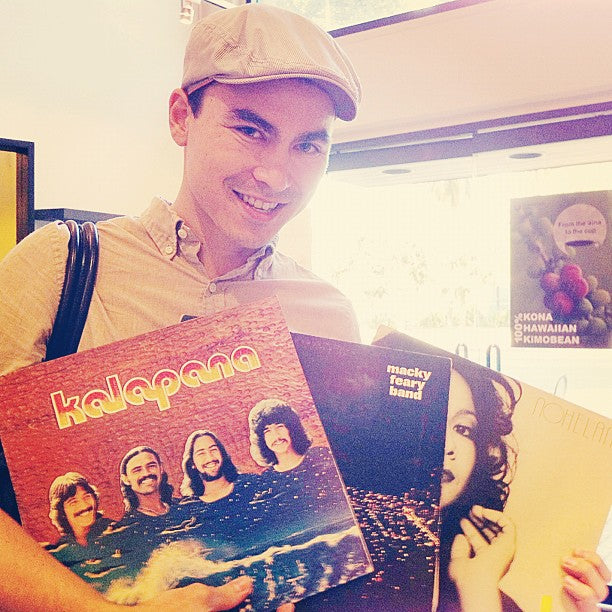Vinyl records are not dead.
Music on wax is "making a comeback", as countless media have reported. (By the way, reporters, vinyl is
already back. Been that way for at least five years now. The only thing vinyl is doing now is growing stronger.)
Vinyl never really died. Other formats—
cassettes, compact discs,
mp3s and internet streaming—tried to capture the market. Some succeeded, some failed. But why is vinyl still around even when Apple's iTunes made nearly $2 billion during 2012 Q2?

Why vinyl matters: wax is still alive after all these years.
Over the years, vinyl records have carried on, proving their resilience as a format that fans truly appreciate. According to Forbes.com, vinyl sales increased to 3.9 million LPs in 2011, up from 2.8 million LPs in 2010. One of the top-selling albums is by Adele, who currently dominates music charts and airwaves throughout the nation. Locally,
Hungry Ear Records is hosting the Hawaii Record Fair, the first event of its kind in the Aloha State.
Why vinyl matters
Vinyl records sound great
Most of you have probably heard this argument before. It's a simple concept: analog music sounds better than ones and zeroes.
When you play a record, waves are translated directly from the record through the stylus needle and into your speakers. The resulting sound is warmer, it soothes us in a way that digital can't.
Because most musicians want you to hear their music as, well,
music—analog vibrations that can
stir the soul—the analog sound from a vinyl record is the closest you'll come to hearing the musicians in-person.

"Brokenhearted" by Richard Natto 45
Vinyl records connect us
I've made a lot of
friends through vinyl. At record stores, nightclubs, school, online. The relationships I've made with people through vinyl records have been some of the most rewarding friendships I've had in my life.
In 2004, my friend Ryan brought his aunt's vinyl collection to my house and we sampled music to make beats.
I'm still making beats, thanks to Ryan and his auntie's records!
In 2008, I was a DJ at my college radio station, KWVA. Vinyl records connected me to other DJs spinning vinyl, but the records I spun on air also connected me to KWVA's listeners. One time, during my weekly two-hour set, I put on a record by Johnny Hartman. A minute later, a man in his sixties called the station to thank me for playing "Charade", the perfect music for a Sunday picnic. Without this vinyl record I bought back at Jelly's years earlier, I wouldn't have touched this man's life with the nostalgic sounds of his past.

Vinyl records connect people.
Vinyl records preserve and educate
This reason speaks strongest to me, because it's what Aloha Got Soul is about:
preserving Hawaii's past and educating people about the music of our islands. Vinyl records serve as historical documents of timely art, culture, and ideas.
I encourage you to shop the vinyl section at your
local music store (or thrift shop) and read liner notes, examine cover art and photographers, and listen to the sounds of people who dedicated part of their lives to record an expression of themselves.
With vinyl as my research foundation, I've learned so much about
Hawaii's funk, soul and jazz music scene. But my experience doesn't end with LPs or 45s. Vinyl records create a gateway for me to seek out musicians, learning directly from the artist about their music and memories.

Roger Bong of Aloha Got Soul, holding some classic Hawaiian vinyl LPs .
Share your thoughts
Why is vinyl important to you? Leave a comment below or tweet
@alohagotsoul.
 Why vinyl matters: wax is still alive after all these years.
Why vinyl matters: wax is still alive after all these years. "Brokenhearted" by Richard Natto 45
"Brokenhearted" by Richard Natto 45 Vinyl records connect people.
Vinyl records connect people. Roger Bong of Aloha Got Soul, holding some classic Hawaiian vinyl LPs .
Roger Bong of Aloha Got Soul, holding some classic Hawaiian vinyl LPs .